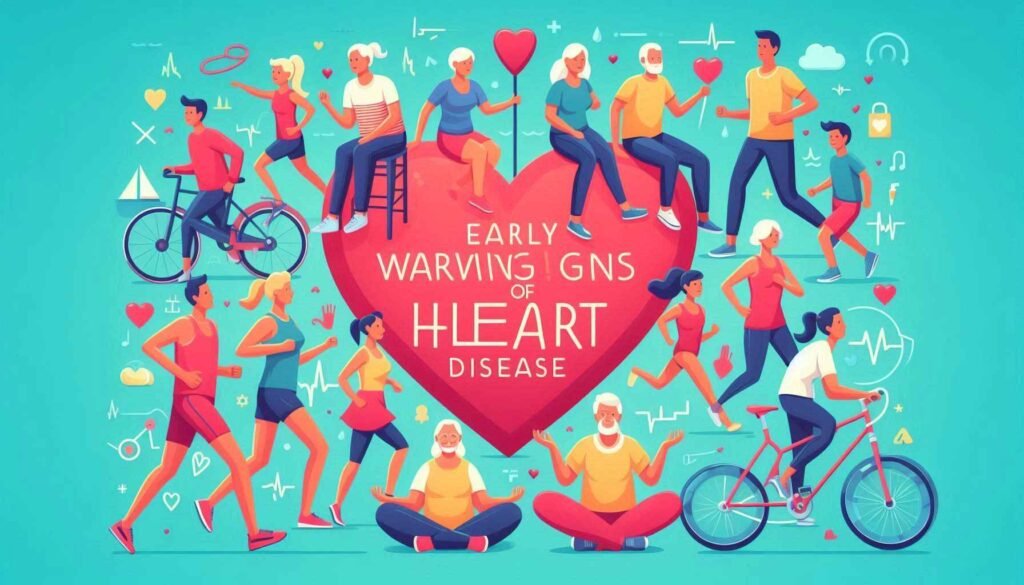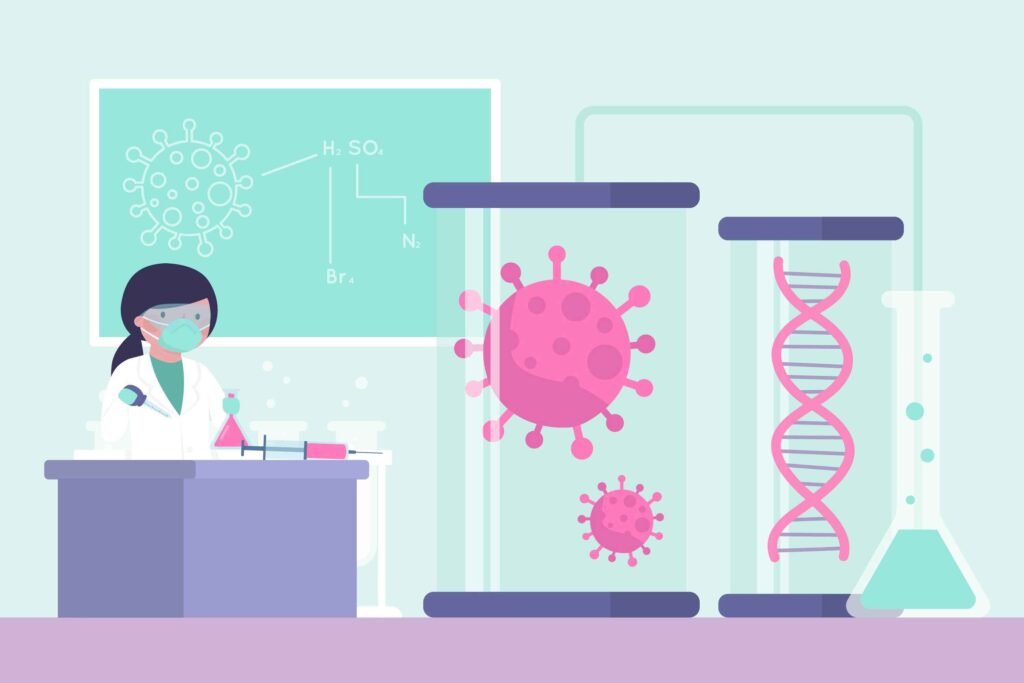
The Impact of Mental Health on Sexual Desire and Function
Introduction
Sexual health is an essential component of overall well-being, yet it is deeply intertwined with mental health. Factors like stress, anxiety, depression, and other mental health conditions can significantly affect sexual desire and function. Understanding this connection is crucial for addressing challenges and fostering a fulfilling intimate life.
In this blog post, we will explore the intricate relationship between mental health and sexual desire, identify common mental health conditions that influence sexual function, and provide practical tips to address these concerns.
The Interplay Between Mental Health and Sexual Desire
Understanding Sexual Desire
Sexual desire, or libido, is influenced by a combination of psychological, physical, and emotional factors. When mental health is compromised, it often disrupts the balance, leading to decreased interest in intimacy or challenges with sexual performance.
How Mental Health Impacts Sexual Desire
- Stress and Libido
Stress is one of the most common inhibitors of sexual desire. Chronic stress increases cortisol levels, which can lower sex hormone production, reducing libido. Furthermore, stress can cause emotional withdrawal, making intimacy less appealing. - Anxiety’s Role in Sexual Function
Anxiety, especially performance-related anxiety, can create a cycle of fear and worry during intimate moments. This often results in avoidance of sexual activity, further exacerbating the issue. - Depression and Its Influence on Desire
Depression is closely linked to a decline in sexual interest and satisfaction. Individuals struggling with depression often experience fatigue, low self-esteem, and a diminished sense of pleasure, all of which affect their intimate relationships.
Common Mental Health Conditions That Affect Sexual Function
1. Anxiety Disorders
- People with generalized anxiety disorder or social anxiety often experience difficulties with arousal and satisfaction.
- Worry about appearance or performance can overshadow the pleasure of intimacy.
2. Depression
- Major depressive disorder frequently causes physical fatigue and emotional detachment, reducing the ability to connect with a partner.
- Medications used to treat depression, such as SSRIs, may also contribute to low libido or sexual dysfunction.
3. Post-Traumatic Stress Disorder (PTSD)
- Survivors of trauma may struggle with intimacy due to triggers that remind them of their past experiences.
- PTSD can lead to avoidance of sexual activity altogether, straining relationships.
4. Eating Disorders
- Disorders such as anorexia and bulimia often stem from poor body image, which directly impacts confidence in intimate settings.
- Nutritional deficiencies associated with these conditions can also affect hormone levels and libido.
The Psychological Impact of Body Image Issues
Body image plays a significant role in sexual confidence. Individuals who feel dissatisfied with their appearance often experience heightened anxiety during intimacy, reducing overall satisfaction and desire.
Breaking the Cycle: How to Address Mental Health and Sexual Challenges
- Communication with Your Partner
Open dialogue about mental health struggles is the cornerstone of a healthy relationship. Sharing concerns can reduce misunderstandings and foster mutual support. - Seeking Professional Help
Therapists and counselors trained in sexual health can help identify and address the root causes of sexual challenges. Cognitive-behavioral therapy (CBT) is particularly effective in managing anxiety and depression. - Self-Care Practices
- Regular exercise, mindfulness meditation, and stress management techniques can improve mental health and restore libido.
- Engaging in activities that boost self-esteem can enhance body image and sexual confidence.
Understanding the Emotional Impact
The relationship between mental health and sexual function is often cyclical. Struggles with sexual health can lead to feelings of guilt, frustration, and inadequacy, further exacerbating mental health challenges. Recognizing this cycle is the first step toward breaking it.
- The Role of Guilt and Shame
- Many individuals experience shame when their mental health impacts their intimate relationships.
- Guilt over a perceived inability to satisfy a partner can lead to withdrawal, perpetuating emotional distance.
- The Power of Emotional Intimacy
- Emotional intimacy is just as important as physical connection.
- Strengthening the emotional bond between partners can help navigate challenges in sexual health with compassion and understanding.
Practical Steps to Address Mental Health and Improve Sexual Function
Prioritizing Mental Health
Improving mental well-being is a critical step in restoring sexual desire and function. Here’s how you can focus on your mental health:
- Therapy and Counseling
- Regular sessions with a therapist can address underlying issues such as anxiety, depression, or past trauma.
- Couples therapy can also help partners understand each other’s experiences and work toward a shared solution.
- Medication and Its Role
- While antidepressants and anti-anxiety medications may sometimes affect libido, they are often necessary for mental health stability.
- Discuss alternative medications or dosage adjustments with a healthcare provider to balance mental health and sexual health effectively.
- Mindfulness and Relaxation Techniques
- Mindfulness practices, such as meditation and yoga, reduce stress and promote relaxation, both of which can improve sexual desire.
- Breathing exercises can also help manage performance anxiety during intimate moments.
Rebuilding Confidence and Desire
- Focusing on Self-Image
- Building a positive body image is essential for boosting confidence in intimate settings.
- Engage in activities that make you feel good about your appearance, such as dressing in a way that enhances your self-esteem or practicing self-care rituals.
- Experimenting with New Experiences
- Exploring new aspects of intimacy, such as trying different settings or introducing novelty, can reignite passion and excitement.
- Focus on small, gradual steps to avoid overwhelming either partner.
- Strengthening the Bond with Your Partner
- Set aside time for non-sexual affection, such as cuddling, holding hands, or sharing meaningful conversations.
- These activities can reduce pressure and increase comfort, ultimately enhancing physical intimacy.
The Influence of Lifestyle Choices on Sexual Health
1. Nutrition and Sexual Desire
- A balanced diet can improve mood and energy levels, which are essential for a healthy libido.
- Foods rich in omega-3 fatty acids, zinc, and vitamin B12 can boost sexual health by supporting hormone production.
2. The Role of Physical Activity
- Exercise is a powerful stress reliever and mood booster.
- Regular physical activity improves circulation, which can enhance physical readiness and arousal.
3. Sleep and Its Effect on Libido
- Quality sleep is essential for both mental health and sexual desire.
- Addressing sleep disorders or creating a sleep-friendly environment can positively impact intimacy.
4. Limiting Alcohol and Substance Use
- While alcohol may temporarily reduce inhibitions, excessive consumption can negatively impact performance and desire.
- Similarly, certain substances can interfere with arousal and satisfaction, making moderation or avoidance critical.
When to Seek Professional Help
1. Recognizing When You Need Support
- If mental health struggles persist and continue to affect your relationship or sexual health, professional guidance is essential.
- Signs to watch for include prolonged avoidance of intimacy, ongoing communication breakdowns, or heightened emotional distress.
2. The Role of Specialists
- Consulting with a sexual health specialist or therapist can help address specific challenges and tailor solutions to individual needs.
- Specialists often combine psychological and medical approaches for a comprehensive treatment plan.
Building a Foundation for Sexual and Mental Well-Being
1. The Importance of Patience
- Restoring balance between mental health and sexual health takes time.
- Both partners must approach the process with patience and a willingness to support each other.
2. Celebrating Progress
- Celebrate small victories along the way, such as improved communication or a renewed sense of closeness.
- Acknowledging progress helps build confidence and reinforces positive changes.
3. Maintaining Open Communication
- Keep the lines of communication open with your partner, even when discussing sensitive topics.
- Honest conversations about needs, fears, and goals create a stronger foundation for mutual understanding and intimacy.
Sustaining Mental Health for Improved Sexual Function
Once mental health and sexual health challenges are addressed, the next step is creating a plan for long-term sustainability. Maintaining a balanced lifestyle and a supportive relationship can prevent these challenges from resurfacing.
- Regular Mental Health Check-Ins
- Make mental health care an ongoing priority, even when you feel well.
- Routine therapy sessions or self-reflection practices can help identify and resolve potential stressors early.
- Strengthening Emotional Resilience
- Building resilience helps manage life’s inevitable challenges, reducing their impact on both mental and sexual health.
- Practices such as journaling, gratitude exercises, and mindfulness can foster emotional strength.
The Role of Relationships in Sexual Health
Nurturing Emotional Connection
A strong emotional connection is the foundation of a healthy sexual relationship. Partners who feel emotionally supported are more likely to experience intimacy as a source of joy and comfort.
- Active Listening
- Being fully present in conversations strengthens trust and emotional closeness.
- Validate your partner’s feelings, and show empathy to foster a safe space for open communication.
- Prioritizing Quality Time
- Setting aside time for shared activities strengthens the bond between partners.
- Simple acts like cooking together, enjoying a walk, or watching a movie can enhance intimacy.
Building Trust and Security
Trust is a critical factor in both mental health and sexual desire. A secure relationship allows individuals to feel vulnerable and open, paving the way for deeper connection and satisfaction.
- Honoring Commitments
- Consistency in actions and words reinforces trust over time.
- Show reliability by following through on promises and being emotionally available.
- Acknowledging Individual Boundaries
- Respecting your partner’s boundaries fosters a sense of safety.
- Discuss preferences openly to ensure that both partners feel comfortable and valued.
Overcoming Societal Stigmas
Addressing Mental Health Stigma
Mental health challenges often come with societal stigma, which can discourage individuals from seeking help. Breaking free from these constraints is essential for recovery and growth.
- Normalizing Conversations about Mental Health
- Share personal experiences or support loved ones in discussing their struggles.
- Open dialogue reduces the shame associated with mental health issues.
- Seeking Supportive Communities
- Join groups or forums where mental health challenges are openly discussed.
- Connecting with others who share similar experiences can foster a sense of belonging.
Challenging Sexual Health Taboos
Sexual health is often considered a private or uncomfortable topic, leading to misunderstandings and miscommunication.
- Promoting Education and Awareness
- Learn about sexual health and encourage others to do the same.
- Education empowers individuals to make informed decisions about their well-being.
- Encouraging Open Discussions
- Normalize conversations about sexual health in relationships and social circles.
- Addressing challenges openly can help reduce feelings of isolation or embarrassment.
Adapting to Life Changes That Impact Sexual Health
Navigating Hormonal Changes
Hormonal fluctuations, whether due to aging, pregnancy, or medical conditions, can affect libido and sexual performance.
- Menopause and Andropause
- These life stages bring significant hormonal shifts that may affect sexual desire.
- Consulting a healthcare provider about treatments or supplements can alleviate symptoms.
- Postpartum and Parenthood
- The demands of parenting can lead to stress and fatigue, reducing intimacy.
- Finding time for self-care and connection with your partner is key to maintaining closeness.
Adapting to Medical Conditions
Chronic illnesses, surgeries, or medications can impact both mental and sexual health.
- Collaborating with Healthcare Providers
- Discuss concerns openly with doctors to explore solutions tailored to your needs.
- Rehabilitation therapies or alternative treatments may help restore confidence and function.
- Maintaining a Positive Outlook
- Focus on the aspects of intimacy that remain fulfilling.
- Emphasize emotional connection while working through physical challenges.
Fostering a Holistic Approach to Sexual and Mental Well-Being
Integrating Physical, Emotional, and Social Health
Adopting a holistic perspective ensures that all aspects of health are addressed, creating a strong foundation for both mental and sexual well-being.
- Physical Health
- Regular exercise, a balanced diet, and sufficient sleep contribute to better overall health, which positively influences libido.
- Addressing chronic health issues proactively reduces their impact on intimacy.
- Emotional Health
- Practicing mindfulness, self-compassion, and gratitude enhances mental resilience.
- Therapy or support groups can provide additional tools for managing emotional health.
- Social Connections
- Building a supportive network of friends and family reduces feelings of isolation.
- Positive social interactions can improve mood and boost self-esteem, indirectly enhancing sexual health.
Embracing a Positive Future
Celebrating Personal Growth
The journey to improved mental and sexual health is a testament to personal strength and resilience. Celebrate milestones and acknowledge the progress made, no matter how small.
- Setting Realistic Expectations
- Understand that recovery and improvement take time.
- Be kind to yourself and focus on incremental changes.
- Reinforcing Healthy Habits
- Continuously practice the habits and techniques that have proven effective.
- Regularly revisit strategies to adapt them to new circumstances or challenges.
Inspiring Others Through Your Journey
Sharing your experiences can inspire others to prioritize their mental and sexual health. Your story might be the encouragement someone needs to seek help or make positive changes.



